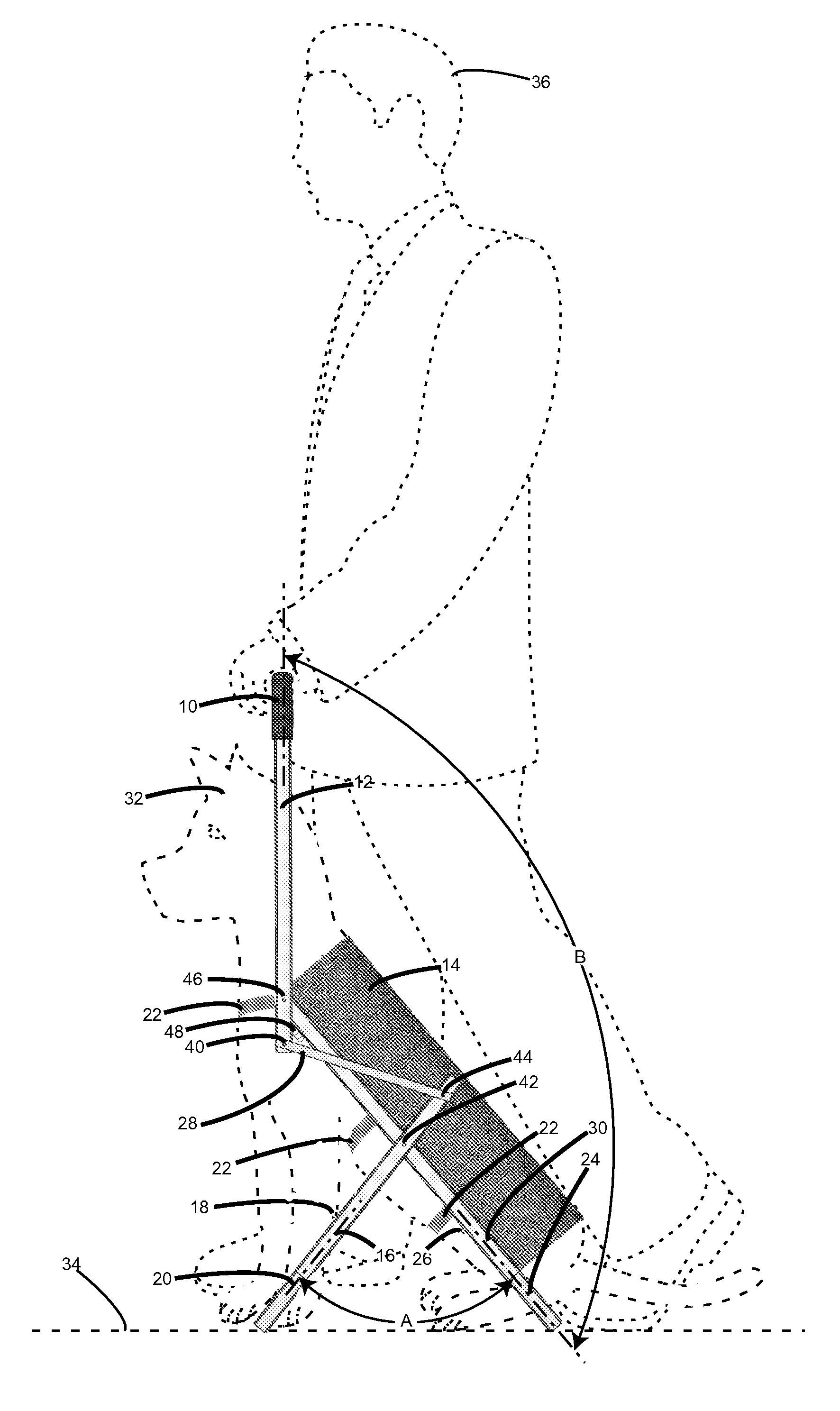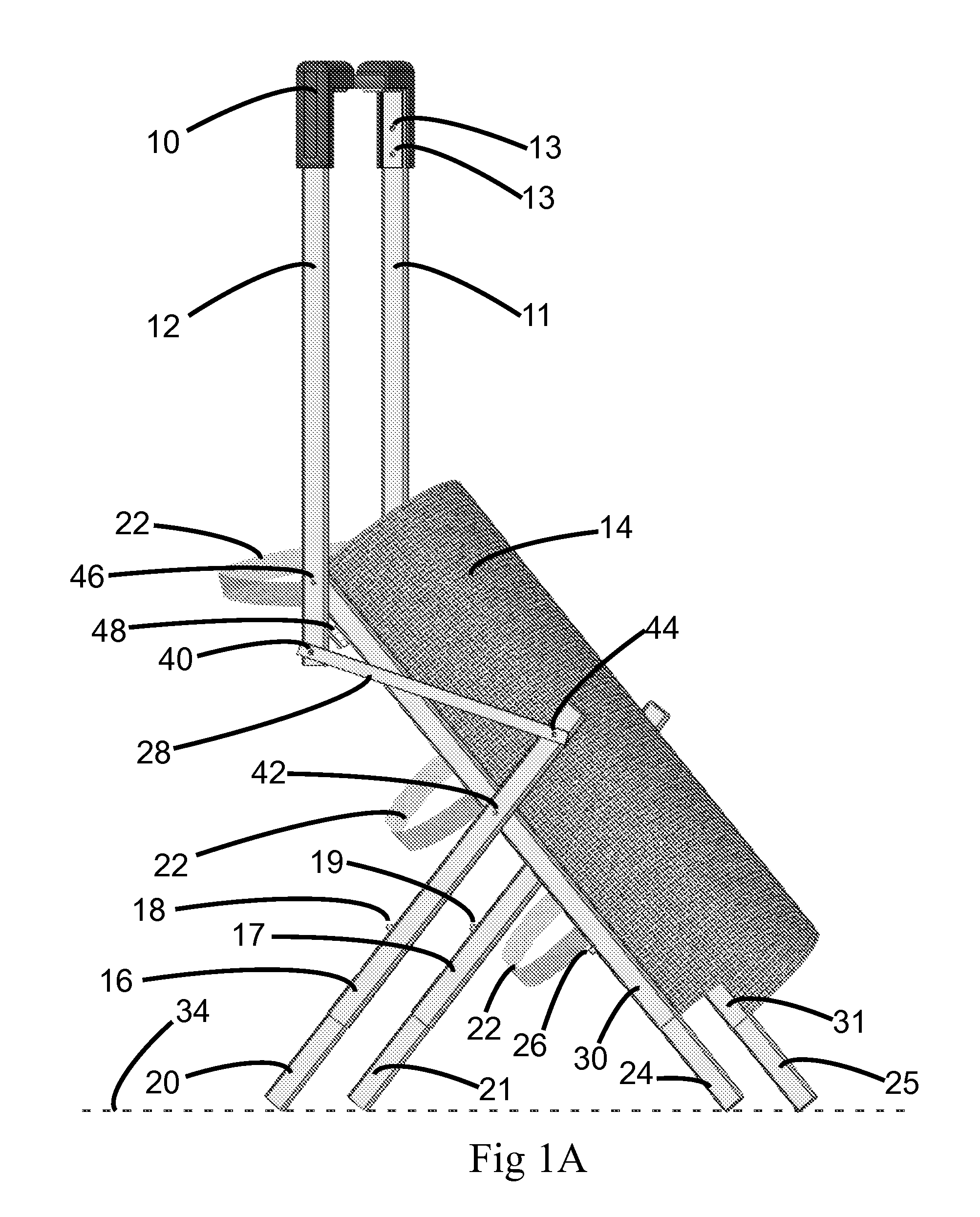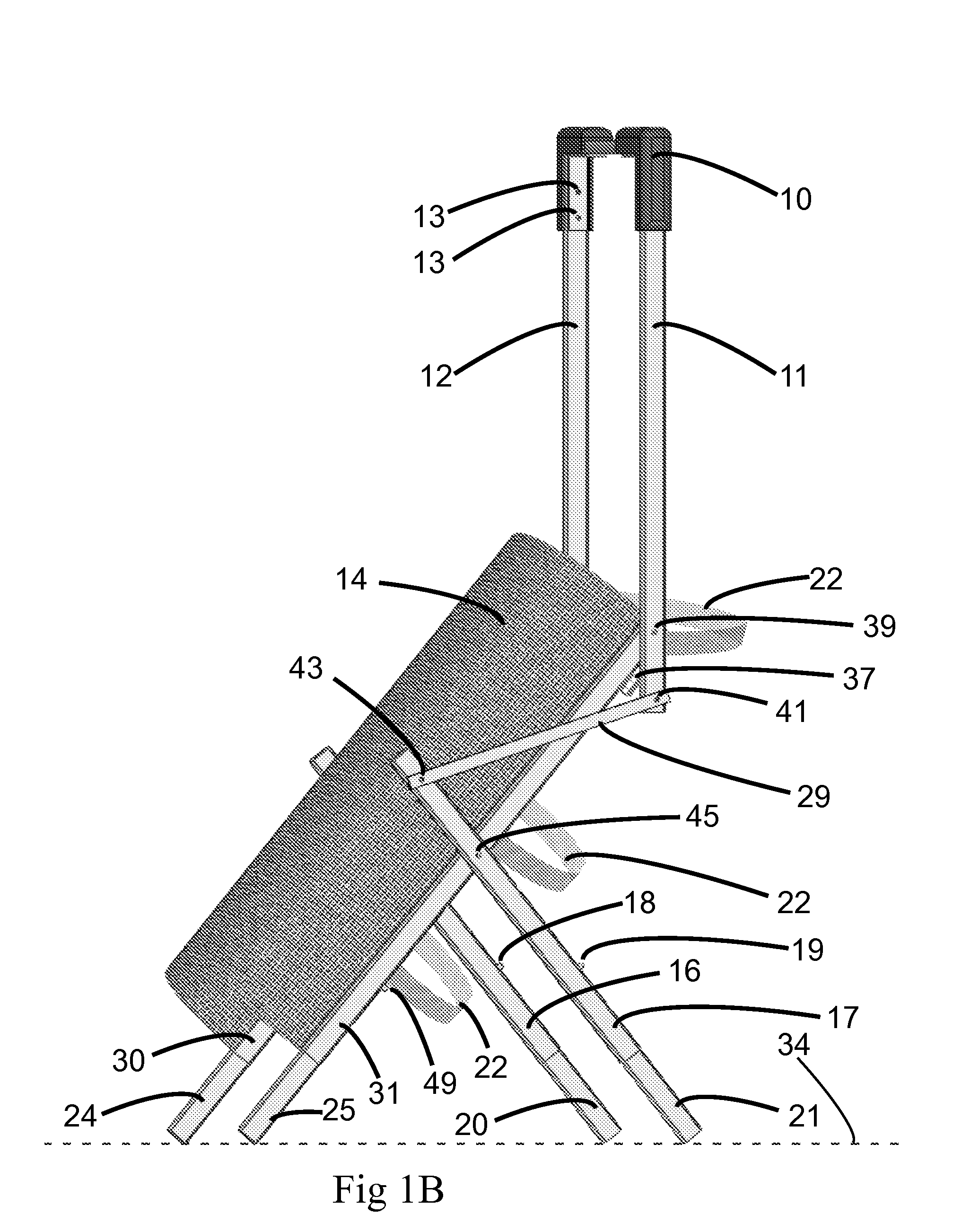Force Transfer Harness and Method
a technology of harnesses and harnesses, applied in the field of force transfer harnesses, can solve the problems of limiting the penetration of walker dogs within the disabled community, the difficulty of adjusting to the new environment, and the inability to adapt to the new environment. the effect of 100% alignment with the handler, reducing the training required to coordinate the dog's motion and gate with the handler, and being easy to adap
- Summary
- Abstract
- Description
- Claims
- Application Information
AI Technical Summary
Benefits of technology
Problems solved by technology
Method used
Image
Examples
Embodiment Construction
[0017]The present invention provides a FTH that utilizes the harness structure to redirect the handler's forces, through the harness structure, and into the underlying ground. As the harness handle is moved from its at rest position which has the handle near the dog's hind quarters, to a position that engages the hand of the human handler in which the handle position is roughly perpendicular to the underlying ground, a linkage between the handle and the harness moveable legs, causes a corresponding movement to occur in the harness support structure moveable legs. With the handle roughly perpendicular to the underlying ground the human handler is approximately astride the dog with the dog in a standing position. In this position the FTH moveable legs are partially descended towards the ground in a partially open inverted V shaped position while the harness fixed legs are parallel to the ground and parallel to the dog's back. At the same time the moveable harness legs are not in conta...
PUM
 Login to View More
Login to View More Abstract
Description
Claims
Application Information
 Login to View More
Login to View More - R&D
- Intellectual Property
- Life Sciences
- Materials
- Tech Scout
- Unparalleled Data Quality
- Higher Quality Content
- 60% Fewer Hallucinations
Browse by: Latest US Patents, China's latest patents, Technical Efficacy Thesaurus, Application Domain, Technology Topic, Popular Technical Reports.
© 2025 PatSnap. All rights reserved.Legal|Privacy policy|Modern Slavery Act Transparency Statement|Sitemap|About US| Contact US: help@patsnap.com



